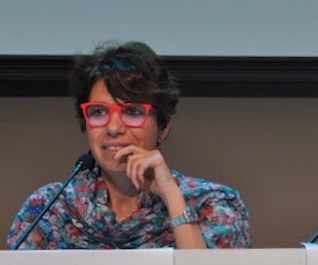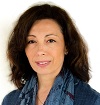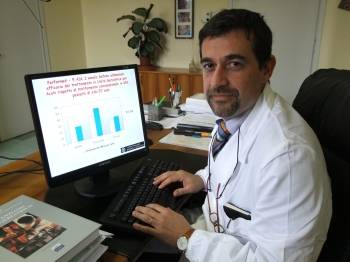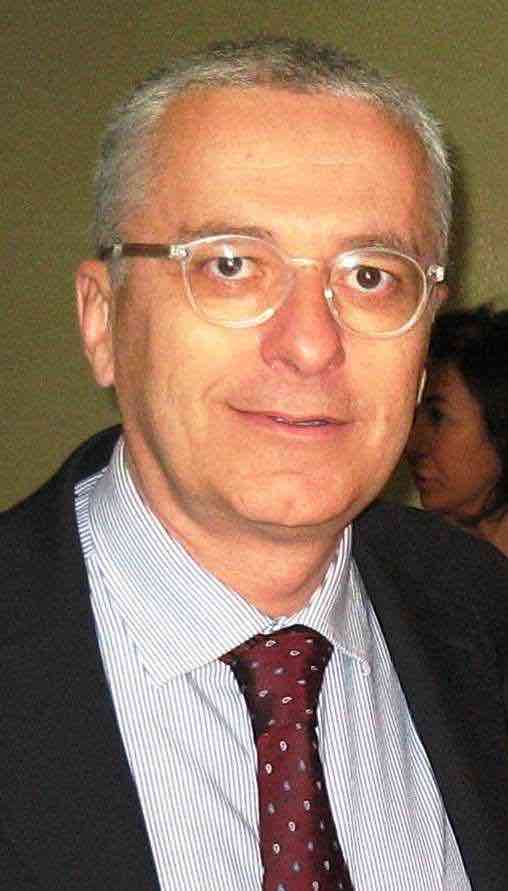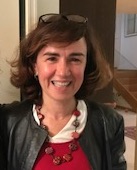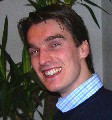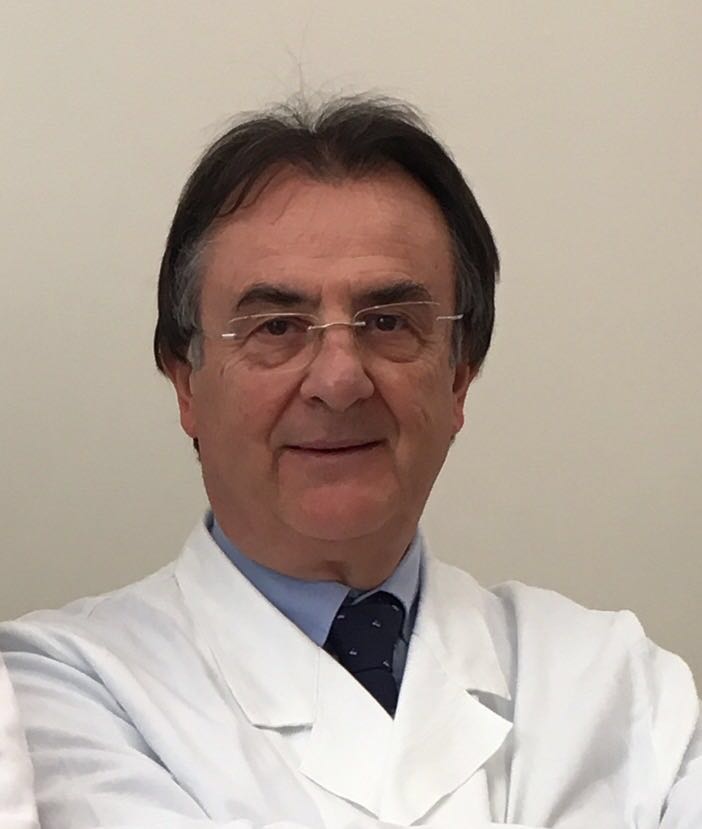Studying at the University of Verona
Here you can find information on the organisational aspects of the Programme, lecture timetables, learning activities and useful contact details for your time at the University, from enrolment to graduation.
Academic calendar
The academic calendar shows the deadlines and scheduled events that are relevant to students, teaching and technical-administrative staff of the University. Public holidays and University closures are also indicated. The academic year normally begins on 1 October each year and ends on 30 September of the following year.
Course calendar
The Academic Calendar sets out the degree programme lecture and exam timetables, as well as the relevant university closure dates..
| Period | From | To |
|---|---|---|
| LMSIO 2° ANNO 1° Semestre | Oct 1, 2018 | Jan 18, 2019 |
| LMSIO 1° ANNO 1° Semestre | Nov 12, 2018 | Jan 18, 2019 |
| LMSIO 2° ANNO 2° Semestre | Apr 15, 2019 | Jun 30, 2019 |
| LMSIO 1° ANNO 2° Semestre | Apr 15, 2019 | Jun 30, 2019 |
| Session | From | To |
|---|---|---|
| Sessione invernale Lm Sio Vr | Mar 1, 2019 | Mar 30, 2019 |
| Sessione estiva Lm Sio Vr | Jul 1, 2019 | Jul 31, 2019 |
| Sessione autunnale Lm Sio Vr | Sep 1, 2019 | Sep 30, 2019 |
| Session | From | To |
|---|---|---|
| Prima sessione Lm Sio Vr | Jun 17, 2019 | Jul 31, 2019 |
| Seconda sessione Lm Sio Vr | Oct 1, 2019 | Jan 10, 2020 |
| Terza sessione Lm Sio Vr | Apr 1, 2020 | Apr 30, 2020 |
| Period | From | To |
|---|---|---|
| FESTIVITA' OGNISSANTI | Nov 1, 2018 | Nov 1, 2018 |
| Festa dell’Immacolata | Dec 8, 2018 | Dec 8, 2018 |
| VACANZE DI NATALE | Dec 22, 2018 | Jan 6, 2019 |
| VACANZE DI PASQUA | Apr 19, 2019 | Apr 23, 2019 |
| FESTA DELLA LIBERAZIONE | Apr 25, 2019 | Apr 25, 2019 |
| FESTIVITA' DEL LAVORO | May 1, 2019 | May 1, 2019 |
| FESTIVITA' DEL SANTO PATRONO SAN ZENO | May 21, 2019 | May 21, 2019 |
| FESTA DELLA REPUBBLICA | Jun 2, 2019 | Jun 2, 2019 |
| VACANZE ESTIVE | Aug 13, 2019 | Aug 18, 2019 |
| Description | Period | From | To |
|---|---|---|---|
| Stage 2° anno Lm Sio Vr | Stage 2° anno Lm Sio Vr | Jul 1, 2019 | Nov 30, 2019 |
Exam calendar
Exam dates and rounds are managed by the relevant Medicine Teaching and Student Services Unit.
To view all the exam sessions available, please use the Exam dashboard on ESSE3.
If you forgot your login details or have problems logging in, please contact the relevant IT HelpDesk, or check the login details recovery web page.
Academic staff
 mcarfagna@ausl-cesena.emr.it
mcarfagna@ausl-cesena.emr.it
 trap71@hotmail.com
trap71@hotmail.com
 tullio.ferrari@univr.it
tullio.ferrari@univr.it
 alvisa.palese@dstb.uniud.it
alvisa.palese@dstb.uniud.it
 loredana.pancheri@univr.it
loredana.pancheri@univr.it
 sara.pilotto@univr.it
sara.pilotto@univr.it
 danielesalmaso@fondazionezancan.it
danielesalmaso@fondazionezancan.it
 fvallicella@vodafone.it
fvallicella@vodafone.it
 francesca.venturini@aopd.veneto.it
francesca.venturini@aopd.veneto.it
 cinzia.vivori@apss.tn.it
cinzia.vivori@apss.tn.it
Study Plan
The Study Plan includes all modules, teaching and learning activities that each student will need to undertake during their time at the University.
Please select your Study Plan based on your enrollment year.
1° Year
| Modules | Credits | TAF | SSD |
|---|
2° Year activated in the A.Y. 2019/2020
| Modules | Credits | TAF | SSD |
|---|
| Modules | Credits | TAF | SSD |
|---|
| Modules | Credits | TAF | SSD |
|---|
Legend | Type of training activity (TTA)
TAF (Type of Educational Activity) All courses and activities are classified into different types of educational activities, indicated by a letter.
Designing and managing organizational and educational processes (2019/2020)
The teaching is organized as follows:
Learning outcomes
L’insegnamento si propone le seguenti finalità: sviluppare capacità di progettazione di eventi formativi nei contesti sanitari e orientati allo sviluppo professionale. Acquisire competenze didattiche e valutative con particolare approfondimento dei processi di apprendimento sul campo e dall’esperienza. teorie dell’apprendimento dall’esperienza. Sviluppare competenze dichiarative e procedurali nel campo della metodologia della ricerca pedagogica con particolare approfondimento della ricerca qualitativa. MODULO METODOLOGIA DELLA RICERCA QUALITATIVA Obiettivi formativi: Al termine del Modulo lo studente sarà in grado di: evidenziare complementarietà e differenze degli approcci di ricerca qualitativa e quantitativa formulare domande di ricerca qualitativa selezionare un disegno di studio qualitativo adeguato al tipo di quesito di ricerca individuato comprendere i principi del campionamento nella ricerca qualitativa selezionare appropriate strategie di raccolta dati comprendere i principi di base di analisi dei dati qualitativi comprendere l’affidabilità e l'utilità dei risultati della ricerca qualitativa nel processo di assistenza infermieristica. MODULO PEDAGOGIA SANITARIA Obiettivi formativi: condurre gruppi di apprendimento riconoscere le dinamiche e i ruoli di mantenimento e non mantenimento del gruppo approfondire la teoria del gruppo come sistema, le dinamiche che rappresentano la vita del gruppo analizzare la gestione dei conflitti, lo sviluppo dell'apprendimento, il gruppo come sistema, il gruppo di lavoro, membership - groupship, le componenti razionali e psicosociali riconoscere la leadership: il leader ed il conduttore del gruppo, caratteristiche, quando è efficace, le difficoltà da gestire nei piccoli gruppi approfondire le metodologie di apprendimento in piccolo gruppo: PBL, case method, role playing, paziente simulato analizzare le medical humanities e l’apprendimento delle abilità relazionali e di cura 9 MODULO PROGETTAZIONE FORMATIVA IN AMBITO SANITARIO Obiettivi formativi: sviluppare competenze avanzate di progettazione formativa sviluppare competenze didattiche per la gestione di lezioni interattive, laboratori simulati e insegnamento clinico a letto del paziente costruire strumenti di valutazione dell’apprendimento teorico e delle competenze cliniche progettare percorsi di valutazione del personale finalizzati allo sviluppo professionale approfondire la gestione di colloqui e feedback formativi
Program
------------------------
MM: PEDAGOGIA SANITARIA
------------------------
------------------------
MM: PROGETTAZIONE FORMATIVA IN AMBITO SANITARIO
------------------------
Educational design in health: from the analysis of educational needs to the definition of educational objectives, the choice of teaching and evaluation methods, The construction of the program of a training event. Teaching methods: interactive lesson, case method, simulations for technical skills. Evaluation process of theoretical and clinical learning: aims, tools, types of tests. The process of assessing the skills and performance of healthcare professionals. The management of evaluation interviews.
------------------------
MM: STRUMENTI DI PROGETTAZIONE DEI CAMBIAMENTI ORGANIZZATIVI
------------------------
Design your professional development (portfolio) Exercise of project work on issues with a high care value and oriented primarily to primary care. Change management: - Planning of an organizational change - Resistances and theories on worker behavior - Coaching and strategies to support and involve chang
------------------------
MM: PROGETTAZIONE E VALUTAZIONE DEI PROCESSI DI SVILUPPO PROFESSIONALE
------------------------
1. Staff management in the current healthcare scenario - Magnet hospitals, ideal places to work. Features favoring a good workplace. - Personnel acquisition, staff planning, recruitment, curriculum, selection, hiring, acceptance and insertion. - Evaluation, goal setting and reward systems - The staffing: regulations, the minimum criteria for the staffing, the basic staff, the integration with the basic staff, the overall staffing time, the conditions for a good shiftwork. Variables that affect the need for care staff (care complexity, structure and technology, organizational and care models) 2. Project Management, how to build a project, phases, critical nodes, variables and tools to be used, general intermediate and specific objectives, structure, outcome and process indicators, patient satisfaction, indicators and assistance aspects Tools: brainstorming, Ishikawa diagram, simple / weighted vote, responsibility matrix, lattice models, Gantt diagram.
Bibliography
| Author | Title | Publishing house | Year | ISBN | Notes |
|---|---|---|---|---|---|
| Zannini L. | Fare Formazione nei contesti di prevenzione e cura | Edizioni pensa Multimedia | 2015 | ||
| Guilbert JJ | Guida Pedagogica (Edizione 4) | 2002 | |||
| Quaglino GP | Il processo di formazione- Scritti di Formazione 2, 1981-2005. | Milano: Franco Angeli, | 2005 | ||
| Fraccaroli, F. | Apprendimento e formazione nelle organizzazioni. | Il Mulino. Milano. | 2007 | ||
| Lipari, D. & Valentini, P. | Comunità di pratica in pratica | Edizioni Palinsesto. Roma. | 2013 | ||
| Lipari D. | Progettazione e valutazione nei processi formativi | Roma: Edizioni Lavoro. | 2002 | ||
| Kreitner R. e Kinicki A. | Comportamento organizzativo | Apogeo | 2013 | Cap. 9 | |
| Dessler G. | Gestione delle risorse umane | Pearson | 2017 | cap. 10 | |
| Loiudice M. | La gestione del cambiamento in sanità | Centro Scientifico | 1997 | ||
| Vanzetta M. Vallicela F. Caldana P | La gestione delle risorse umane | McGraw-Hill | 2008 | Cap. 3 | |
| Auteri E. | Management delle risorse umane | Guerini | 2004 |
Examination Methods
------------------------
MM: PEDAGOGIA SANITARIA
------------------------
------------------------
MM: PROGETTAZIONE FORMATIVA IN AMBITO SANITARIO
------------------------
Oral examination to verify: depth and breadth of the acquired knowledge, language properties, ability to connect and integrate the knowledge, ability to transfer the acquired skills to their context of professional practice, analytical and argumentative ability. The oral exam focuses on the entire program.
------------------------
MM: STRUMENTI DI PROGETTAZIONE DEI CAMBIAMENTI ORGANIZZATIVI
------------------------
oral
------------------------
MM: PROGETTAZIONE E VALUTAZIONE DEI PROCESSI DI SVILUPPO PROFESSIONALE
------------------------
Written exam with 20 questions on the different contents of the program (multiple choice questions) and two calculation exercises on the organic resources. The assessment of the ability to infer in Project Management, through the analysis of projects will be implemented, through the practical test integrated with the module "Strumenti di progettazione dei cambiamenti organizzativi"
Career prospects
Module/Programme news
News for students
There you will find information, resources and services useful during your time at the University (Student’s exam record, your study plan on ESSE3, Distance Learning courses, university email account, office forms, administrative procedures, etc.). You can log into MyUnivr with your GIA login details: only in this way will you be able to receive notification of all the notices from your teachers and your secretariat via email and also via the Univr app.
Graduation
Documents
| Title | Info File |
|---|---|
|
|
pdf, it, 305 KB, 18/06/24 |
List of thesis proposals
| theses proposals | Research area |
|---|---|
| Effetti psicologici del CoViD sugli operatori sanitari | Various topics |
| Il dismorfismo corporeo | Various topics |
| Il fine vita: cure palliative, eutanasia e suicidio assistito | Various topics |
| Il nichilismo tra i giovani: il fenomeno NEET | Various topics |
| Il problema della donazione degli organi | Various topics |
| Il sacrificio e l'assurdo | Various topics |
| La medicina narrativa | Various topics |
| Le cure palliative: dignità, cura e lutto | Various topics |
| Persona e riduzionismo | Various topics |
| Ricordo e ossessione | Various topics |
Gestione carriere
Orario lezioni
Ultimo aggiornamento orario lezioni: 18/06/2024
Documents
| Title | Info File |
|---|---|
|
|
pdf, it, 480 KB, 23/06/21 |
|
|
octet-stream, it, 1293 KB, 23/06/21 |
|
|
pdf, it, 231 KB, 19/08/24 |
|
|
pdf, it, 269 KB, 18/06/24 |
|
|
pdf, it, 178 KB, 18/06/24 |
Stage
Documents
| Title | Info File |
|---|---|
|
|
pdf, it, 543 KB, 05/10/22 |
|
|
msword, it, 198 KB, 23/06/21 |
|
|
octet-stream, it, 1297 KB, 05/10/22 |
|
|
octet-stream, it, 1297 KB, 05/10/22 |
|
|
octet-stream, it, 1324 KB, 05/10/22 |
|
|
octet-stream, it, 1323 KB, 05/10/22 |
|
|
msword, it, 44 KB, 23/06/21 |
|
|
msword, it, 104 KB, 23/06/21 |
|
|
pdf, it, 111 KB, 10/01/24 |
|
|
pdf, it, 112 KB, 09/05/24 |
|
|
pdf, it, 110 KB, 14/02/24 |
|
|
pdf, it, 168 KB, 18/06/24 |
Student login and resources
Appelli d'esame
Documents
| Title | Info File |
|---|---|
|
|
pdf, it, 189 KB, 21/08/24 |
|
|
pdf, it, 130 KB, 17/06/24 |
|
|
pdf, it, 122 KB, 17/04/24 |
|
|
pdf, it, 154 KB, 16/03/23 |
|
|
pdf, it, 185 KB, 20/01/23 |
|
|
octet-stream, it, 1299 KB, 31/01/23 |
Modalità e sedi di frequenza
La frequenza è obbligatoria.
Maggiori dettagli in merito all'obbligo di frequenza vengono riportati nel Regolamento del corso di studio disponibile alla voce Regolamenti nel menu Il Corso. Anche se il regolamento non prevede un obbligo specifico, verifica le indicazioni previste dal singolo docente per ciascun insegnamento o per eventuali laboratori e/o tirocinio.
È consentita l'iscrizione a tempo parziale. Per saperne di più consulta la pagina Possibilità di iscrizione Part time.
Le sedi di svolgimento delle lezioni e degli esami sono le seguenti:

 +039 0458027288
+039 0458027288

